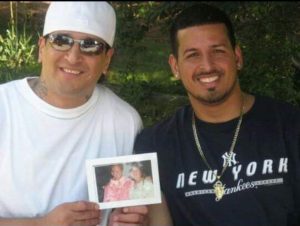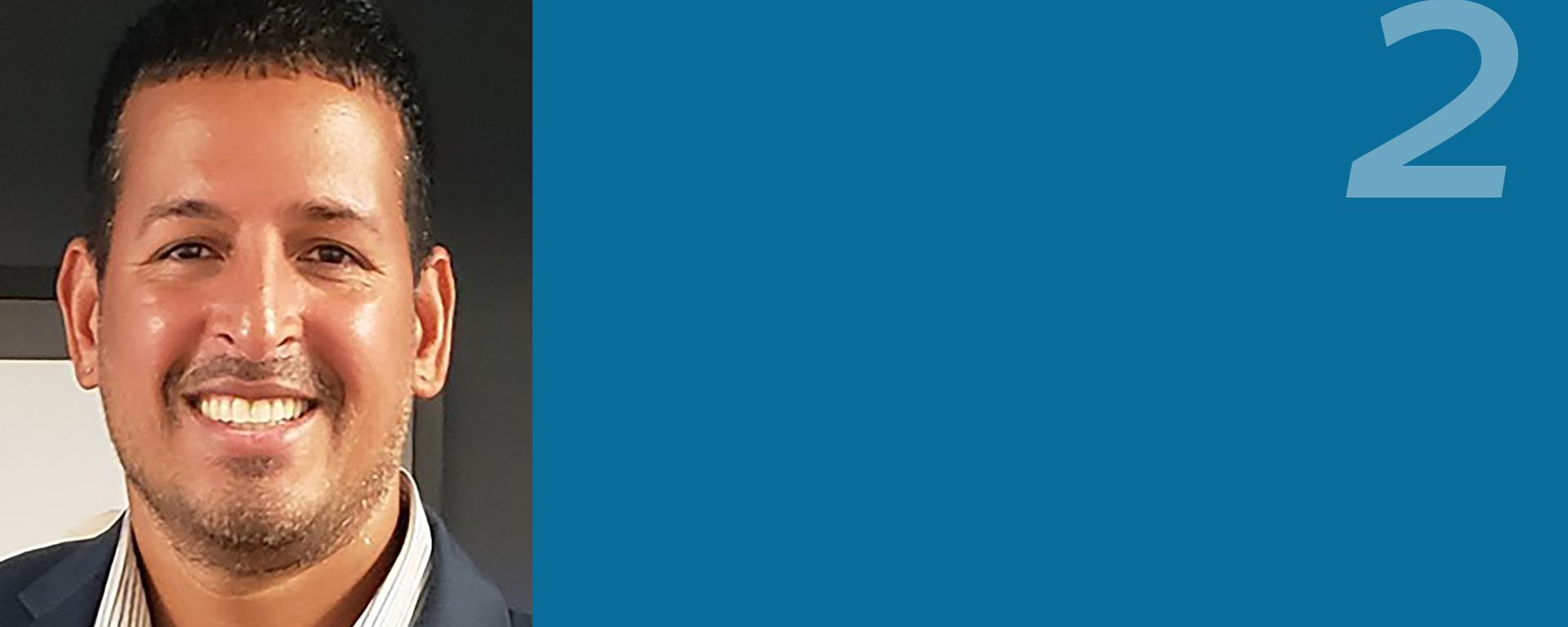Iran’s Story
Part Two: A transformation of trials
Iran’s transition to a new world wasn’t easy, and the temptation to return to his former life waited around every corner — coaxing him to come back through every connection and every kin that Iran held in high regard.
While working for the Institute of Violence Reduction, things proved trying for Iran, who was still transient. “I was living from house to house, place to place. Even though I was getting a paycheck, it wasn’t enough for me to have my own apartment, so I was bouncing from couch to couch. I didn’t have a stable housing situation, I had an active gang membership, and the people that I was around didn’t see a way out.”
When going back into his community and explaining to his family members on the streets his mission to change, Iran recalled that they were all difficult conversations.
“During that time, I was asking myself if I was disappointing the people who were expecting me to be there for them. When you’re in the struggle, and you make relationships with people, you develop a bond, and they depend on you — sometimes for the wrong reasons, but they still depend on you. And when I came back after a full day at work, people started saying I wasn’t invested, that I wasn’t real, that I didn’t have love for them — all those things that go along with making a transformation and people don’t understand that you’re making a change for your best interest. It was tough, but I got through to a lot of them, that’s for sure.”
Protectors, pride, and keeping the peace
One person who always got through to Iran was his older brother, Efrain. “Every year, we were the same age for five days,” Iran explains. “We were really close. Seeing him immediately brought a smile to your face because you knew that he would say something funny. He found laughter in life; he was hilarious.
“He was proud of me, too. Through all of his struggles, he always lifted me up to anybody he talked to. After a while, he started referring to me as his big brother — I was younger, but he started to look up to me, so I couldn’t let him down. He had been promoting me and talking about me proudly as a peacemaker.”
Broken bond between brothers leads to lifelong breakthrough
In 2008, Efrain was murdered on the same Hartford streets that he and Iran had wandered as children. At a gathering, Efrain had intervened to keep the peace between two people that he knew and was killed by a fellow gang member.
“When my brother was murdered, it was a very, very hard thing for me,” Iran discloses. “Through all of our suffering, he was alongside me. When he was ripped away, a whole part was taken from me.
“I loved what I was doing, and I loved helping people, and I had gotten through all of the life tests of my transition, but [that was before someone] killed my brother. It’s inevitable that through your rage and sadness, your brain goes back to what you’re capable of. I knew that I could retaliate against my brother’s death in a very violent way.
“I was offered all kinds of weapons and revenge support — you know, ‘we got you… let’s get them’ and all that stuff. I was able to reflect on how he died and what I meant to him. And I used this as an example because saying no, for me, was the defining moment. That was when I realized I could do better. So, I contacted a detective at the Hartford Police Department and gave them the information on who killed my brother. He was arrested, and now he’s serving time. I chose a different path. That was the moment that confirmed I had gotten into a space where I no longer wanted to get involved in that way of life.”
Since his brother’s murder, Iran has vowed to keep the peace, operating tirelessly throughout New England on creative, non-violence initiatives, working as a youth program coordinator, and holding directorship roles for community outreach and collaborations.
Utilizing his past to promote peace
In 2017, Iran created the Peace Center of Connecticut, a non-profit organization with a mission to “achieve peace in our communities.” And appropriate for a young man who found himself often without a home, his organization’s tagline reads “peace lives here.”
“I didn’t know much peace as a child, and I wanted my non-profit to reflect what I needed most,” Iran explains. “Anywhere I went, I wanted people to know what I stood for and what I represent.
“I’d been working in violence prevention, mediation, and litigation for many years. And I felt that we had so many important people who were incredible at their work and their craft, but at the same time, I felt we were fragmented as a community.
“I was leaving a meeting one day with more than one hundred people, and I was feeling really excited. All the heavy hitters were there for this cause, but we all got into our cars and went home. I sat in the parking lot, and I thought, as happy as I was, none of us had really made a connection. I thought about a bat signal for the city of Hartford that could be illuminated when something needed to be solved, and that’s where it started, right there. I needed to figure out a neutral space to serve as the force multiplier for peace organizations looking to stop violence in the community. I researched peace centers nationally and globally. I stumbled across the Oakland Peace Center in California and loved what they were doing. I called their founder and talked to her for two hours about everything that goes into running a peace center. I kept at it, writing and creating what I wanted for the peace center, and I pitched it to several think tanks. People started giving me advice saying, ‘This is a great idea, we don’t have anything like this in New England,’ so I started it.”
The Peace Center now facilitates peace conversations and conferences and offers youth a peace alliance program, a 12-week agenda that teaches 13- to 15-year-olds how to give back to the community. The Peace Center also provides training for peace-centered professional development and a legacy hall filled with local peace heroes. Iran’s Chalk for Peace initiative annually invites artists to articulate their vision of peace through sidewalk chalk. Simultaneously, the Peace Center’s Peace Games offer obstacle courses and a challenge day all focused around peace.
Click here to go to Part Three of Iran’s story.
Goodwin University is a nonprofit institution of higher education and is accredited by the New England Commission of Higher Education (NECHE), formerly known as the New England Association of Schools and Colleges (NEASC). Goodwin University was founded in 1999, with the goal of serving a diverse student population with career-focused degree programs that lead to strong employment outcomes.

